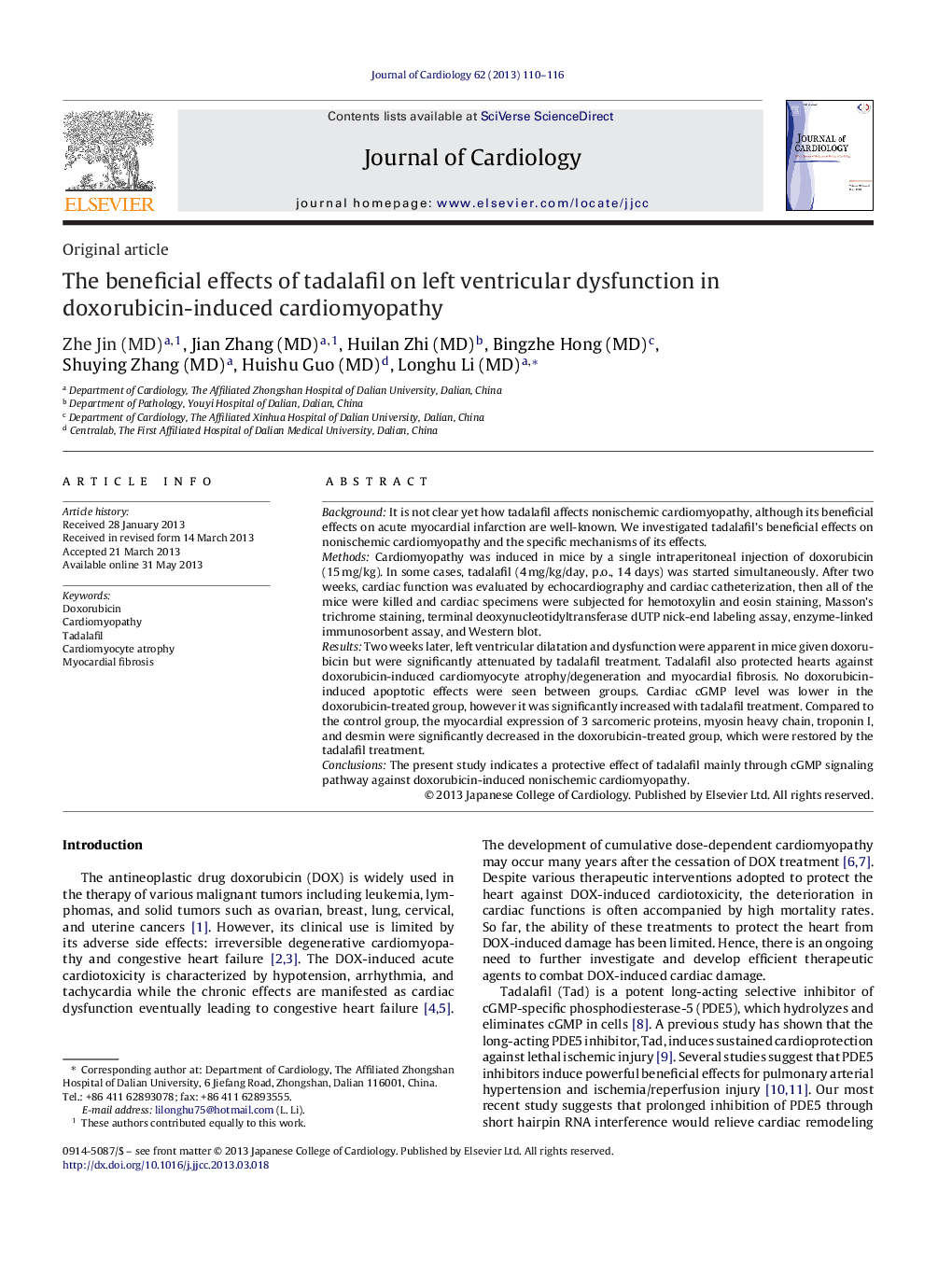| Article ID | Journal | Published Year | Pages | File Type |
|---|---|---|---|---|
| 5984067 | Journal of Cardiology | 2013 | 7 Pages |
BackgroundIt is not clear yet how tadalafil affects nonischemic cardiomyopathy, although its beneficial effects on acute myocardial infarction are well-known. We investigated tadalafil's beneficial effects on nonischemic cardiomyopathy and the specific mechanisms of its effects.MethodsCardiomyopathy was induced in mice by a single intraperitoneal injection of doxorubicin (15Â mg/kg). In some cases, tadalafil (4Â mg/kg/day, p.o., 14 days) was started simultaneously. After two weeks, cardiac function was evaluated by echocardiography and cardiac catheterization, then all of the mice were killed and cardiac specimens were subjected for hemotoxylin and eosin staining, Masson's trichrome staining, terminal deoxynucleotidyltransferase dUTP nick-end labeling assay, enzyme-linked immunosorbent assay, and Western blot.ResultsTwo weeks later, left ventricular dilatation and dysfunction were apparent in mice given doxorubicin but were significantly attenuated by tadalafil treatment. Tadalafil also protected hearts against doxorubicin-induced cardiomyocyte atrophy/degeneration and myocardial fibrosis. No doxorubicin-induced apoptotic effects were seen between groups. Cardiac cGMP level was lower in the doxorubicin-treated group, however it was significantly increased with tadalafil treatment. Compared to the control group, the myocardial expression of 3 sarcomeric proteins, myosin heavy chain, troponin I, and desmin were significantly decreased in the doxorubicin-treated group, which were restored by the tadalafil treatment.ConclusionsThe present study indicates a protective effect of tadalafil mainly through cGMP signaling pathway against doxorubicin-induced nonischemic cardiomyopathy.
